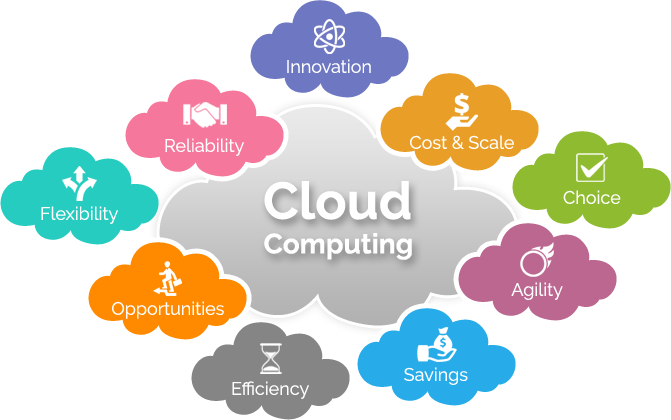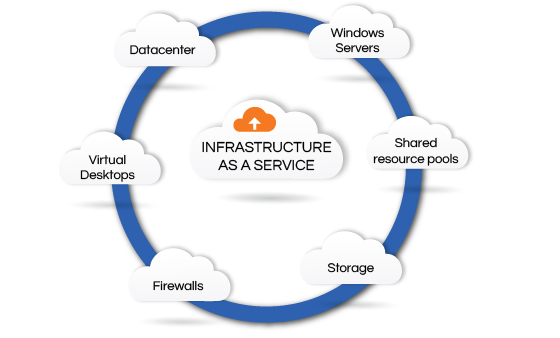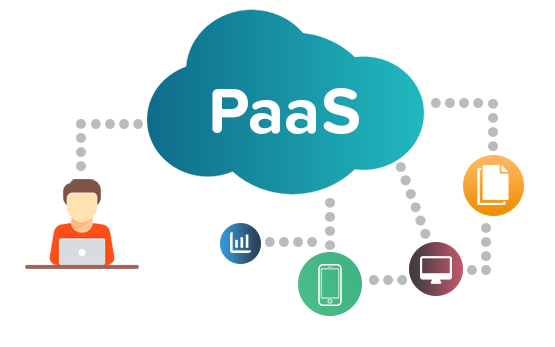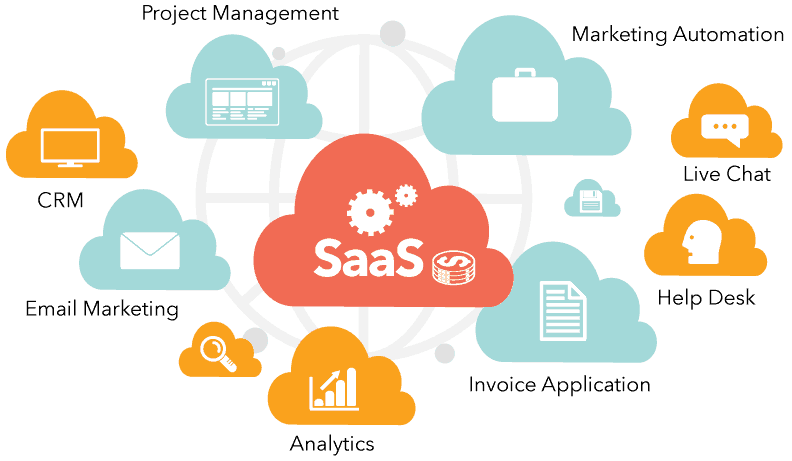Simply put, cloud computing services is the delivery of computing services—servers, storage, databases, networking, software, analytics and more—over the Internet (“the cloud”). Companies offering these computing services are called cloud providers and typically charge for Cloud computing service in USA based on usage, similar to how you are billed for water or electricity at home.
Still foggy on how cloud computing works and what it is for? This beginner’s guide is designed to demystify basic cloud computing jargon and concepts and quickly bring you up to speed.

You are probably using cloud computing right now, even if you don’t realise it. If you use an online service to send email, edit documents, watch movies or TV, listen to music, play games or store pictures and other files, it is likely that cloud computing is making it all possible behind the scenes. The first cloud computing services are barely a decade old, but already a variety of organisations—from tiny startups to global corporations, government agencies to non-profits—are embracing the technology for all sorts of reasons.
Here are a few of the things you can do with the cloud:
Cloud computing is a big shift from the traditional way businesses think about IT resources. What is it about cloud computing? Why is cloud computing so popular? Here are 6 common reasons organisations are turning to cloud computing services:
The services are free from capital expenditure. There are no huge costs of hardware in cloud computing. You just have to pay as you operate it and enjoy the model based on your subscription plan.

In a cloud computing environment, new IT resources are only ever a click away, which means you reduce the time it takes to make those resources available to your developers from weeks to just minutes. This results in a dramatic increase in agility for the organization, since the cost and time it takes to experiment and develop is significantly lower.

Easily deploy your application in multiple regions around the world with just a few clicks. This means you can provide a lower latency and better experience for your customers simply and at minimal cost.

may be increased when multiple users can work on the same data simultaneously, rather than waiting for it to be saved and emailed. Time may be saved as information does not need to be re-entered when fields are matched, nor do users need to install application software upgrades to their computer.

Performance is monitored by IT experts from the service provider, and consistent and loosely coupled architectures are constructed using web services as the system interface.

Reliability improves with the use of multiple redundant sites, which makes well-designed cloud computing suitable for business continuity and disaster recovery.

Most cloud computing services fall into three broad categories: infrastructure as a service (IaaS), platform as a service (PaaS) and software as a service (Saas). These are sometimes called the cloud computing stack, because they build on top of one another. Knowing what they are and how they are different makes it easier to accomplish your business goals.

The most basic category of cloud computing services. With IaaS, you rent IT infrastructure—servers and virtual machines (VMs), storage, networks, operating systems—from a cloud provider on a pay-as-you-go basis.
Infrastructure as a service (IaaS) is an instant computing infrastructure, provisioned and managed over the Internet. Quickly scale up and down with demand and pay only for what you use.
IaaS helps you avoid the expense and complexity of buying and managing your own physical servers and other datacenter infrastructure. Each resource is offered as a separate service component and you only need to rent a particular one for as long as you need it. The cloud computing service provider manages the infrastructure, while you purchase, install, configure and manage your own software—operating systems, middleware and applications.

| Hosted applications/apps | Development tools, database management, business analytics | Operating systems | Servers and storage | Networking firewalls/security | Data center physical plant/building |

Achieve faster results without huge investment in software or hardware Platform-as-a-service (PaaS) refers to cloud computing services that supply an on-demand environment for developing, testing, delivering and managing software applications.
PaaS is designed to make it easier for developers to quickly create web or mobile apps, without worrying about setting up or managing the underlying infrastructure of servers, storage, network and databases needed for development.

| Hosted applications/apps | Development tools, database management, business analytics | Operating systems | Servers and storage | Networking firewalls/security | Data center physical plant/building |

Greater productivity with lesser cost, time and efforts Software-as-a-service (SaaS) is a method for delivering software applications over the Internet, on demand and typically on a subscription basis.
With SaaS, cloud providers host and manage the software application and underlying infrastructure and handle any maintenance, like software upgrades and security patching. Users connect to the application over the Internet, usually with a web browser on their phone, tablet or PC.

| Hosted applications/apps | Development tools, database management, business analytics | Operating systems | Servers and storage | Networking firewalls/security | Data center physical plant/building |

Get a complete roadmap to your cloud migration journey.Cloud Adoption Services chevron_right Innovate in the Cloud Cloud Computing Consulting Services – Application Development Accelerate your time to market with our proven development approach and pre-built software frameworks for cloud-based systems that use IoT, Big Data, Containerization, DevOps and more. Software Development Services chevron_right Run the Cloud Cloud Computing Consulting Services – Managed Services